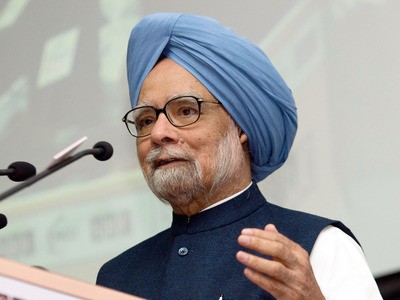
New Delhi: Former prime minister Manmohan Singh today criticised the Centre’s bullet train project, dubbing it an “exercise in vanity”, and said the government’s “priorities are misplaced” as it should have focused on the existing passenger rail network.
Addressing a party event for the business community in poll-bound Gujarat, the Congress leader claimed the project will not benefit either 6.5 crore people of the state or the nation, adding “Gujarati entrepreneurs know very well that if a deal is too good to be true, it probably is not”.
Prime Minister Narendra Modi and his Japanese counterpart Shinzo Abe had in September laid the foundation stone for India’s first high speed rail project between Mumbai and Ahmedabad.
The joint venture between Indian Railways and Japan’s Shinkansen Technology is expected to be completed by 2022.
India’s first bullet train will connect Ahmedabad, the largest city in Gujarat, to Mumbai, cutting travel time from seven hours to less than three.
Modi had said that Japan gave a loan of Rs 88,000 crore at 0.1 per cent interest for the project.
“The bullet train project, launched with much fanfare, is sadly an exercise in vanity and will not benefit either 6.5 crore Gujaratis or the nation,” Singh said here.
“Rs 88,000 crore through a soft loan may seem like easy money, but it still needs to be repaid to the Japanese,” he said.
The government should have rather focused on the existing passenger rail network, the Congress veteran said.
“The bullet train project requires the creation of a parallel infrastructure while our existing passenger rail network is languishing and needs a dire infusion of funds to improve both safety and speed,” he said.
“The past year has seen the highest number of deaths due to derailments in more than a decade, but the government’s priority are misplaced,” Singh said.
He wondered if the prime minister considered the alternative of introducing high speed rail across India by upgrading the existing broad gauge infrastructure.
Singh said the UPA government had in 2005 signed a deal with the Japanese government for a dedicated freight corridor.
“(The dedicated freight corridor) project will create a multiplier effect on the economy, with upgradation of transportation technology, increase in productivity and reduction in unit transportation cost,” he said.


.jpeg)

